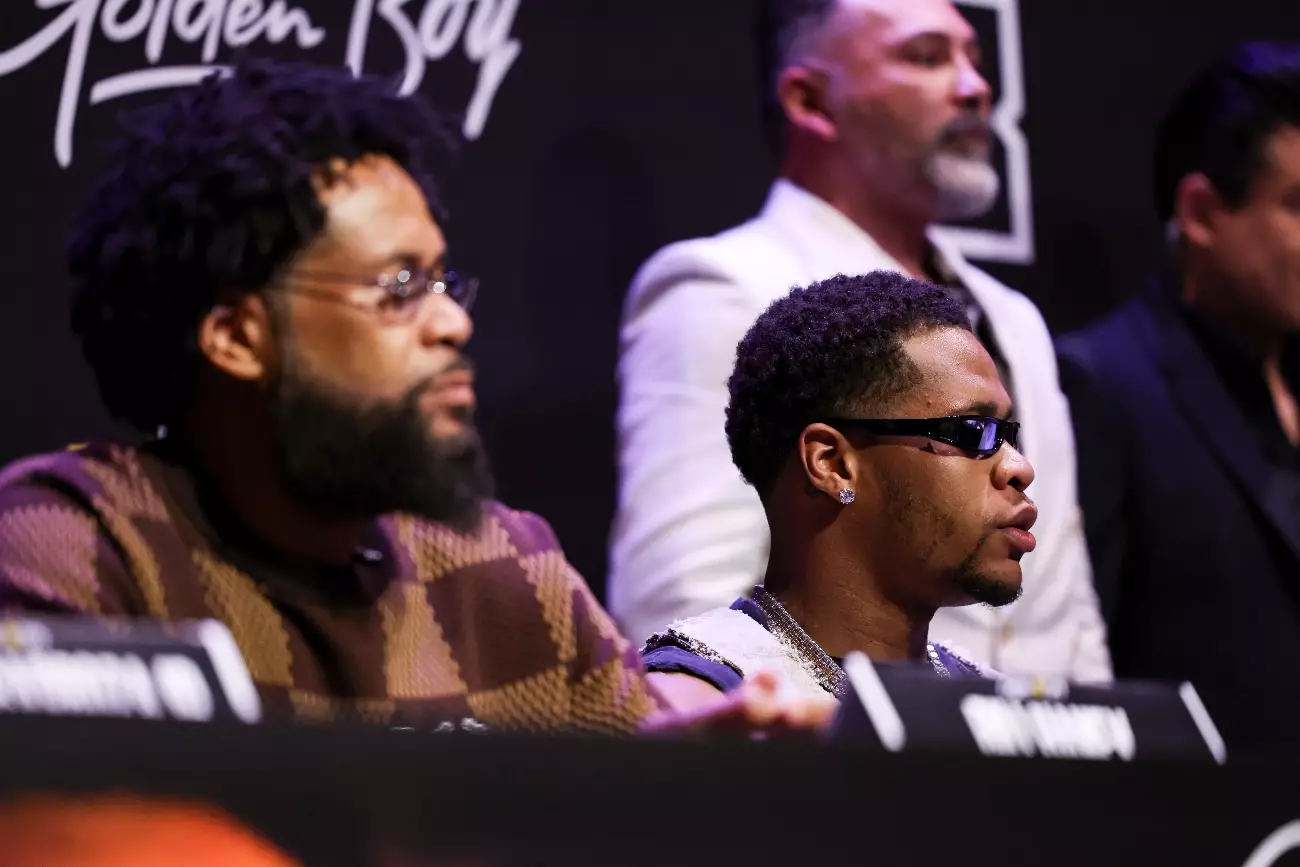In the world of professional boxing, relationships between promoters, fighters, and their camps can often get strained, especially when expectations are not met. The recent incident between promoter Eddie Hearn and fighter Devin Haney exemplifies this precarious balance. The debacle arose when Haney took to social media to voice his frustration over not receiving ringside tickets for the Anthony Joshua vs. Daniel Dubois event at Wembley Stadium. While both parties have their perspectives, the underlying themes of expectations versus reality and professionalism in high-stakes environments merit a closer examination.
At the heart of this public spat is Haney’s decision to air his grievances via Twitter. In an age where social media serves as the principal battleground for public sentiments, it is not uncommon for individuals to seek attention or resolution online, regardless of the implications that may arise. Hearn’s reaction highlights a critical aspect of modern communication whereby personal disputes are often played out in a public forum. For Hearn, who no longer promotes Haney, the expectation that he might still provide VIP treatment seems misplaced. The reality is that the relationship between promoter and fighter can shift dramatically, particularly when the fighter’s recent performance—such as Haney’s loss to Ryan Garcia—factors into the equation.
Hearn’s account of events sheds light on the logistical challenges he faced leading up to the match. With numerous requests from fighters and VIPs, it is clear that the allocation of ringside tickets was a complicated process. Hearn pointed out that his schedule was packed and declining Haney’s late request was not a personal affront but rather a matter of practicality. It underscores a crucial point: in professional boxing, matters such as ticket allocation often transcend personal friendships, turning into logistical nightmares. Hearn’s assertion that Haney should have requested tickets from the Riyadh Season organizers exemplifies the need for clarity and professionalism, even in personal requests.
Their confrontation during the event, captured on video and disseminated widely, illustrates how quickly misunderstandings can escalate in the public eye. Hearn’s criticism of Haney’s approach—labeling him as “arrogant” and naïve—brings to light an important lesson in the boxing world: how to maintain professional decorum even when faced with disappointing situations. It is not just about handling personal relationships; it’s also about sustaining one’s professional reputation. Hearn’s clear disappointment in Haney’s methods reflects the finer points of how fighters, particularly those who are at a vulnerable stage in their careers, must navigate their public personas and relationships with their former promoters.
The incident is particularly poignant given Haney’s recent struggles in the ring. As a fighter who has tasted defeat, his position in the industry is somewhat precarious. The expectation of VIP treatment from someone he no longer has a professional relationship with may seem unfounded, especially in light of his defeat against Garcia. This raises a broader issue in the sport—a fighter’s standing in the boxing hierarchy can shift dramatically based on recent performances, which directly influences how they are treated by promoters. Haney’s status may have diminished following his loss, making his sentiment for preferential treatment appear out of touch.
Ultimately, the fallout from this dispute serves as a reminder for fighters and promoters alike of the delicate balance that exists in their relationships. While frustrations will always arise, handling them with professionalism and respect—whether through private conversation or public discourse—is essential in the high-stakes arena of boxing. Both Hearn and Haney can learn from this encounter, ensuring that future engagements—whether they involve ticket requests or contractual obligations—are navigated more strategically. It’s imperative for fighters to understand that their recent performances directly influence their clout, and for promoters to set clear boundaries as relationships evolve. As the world of boxing continues to change, adapting to these dynamics will be crucial for long-term success on both sides of the ring.

